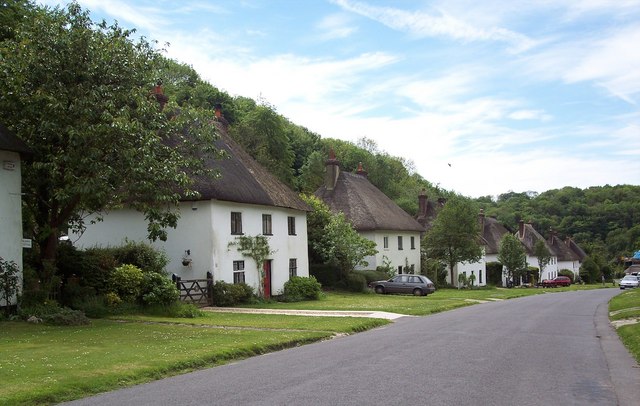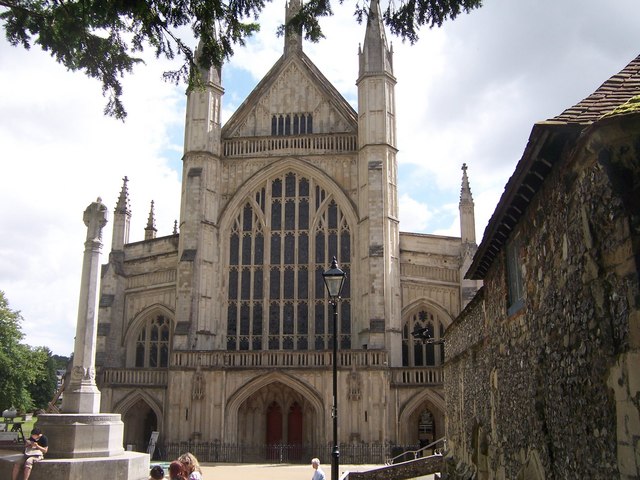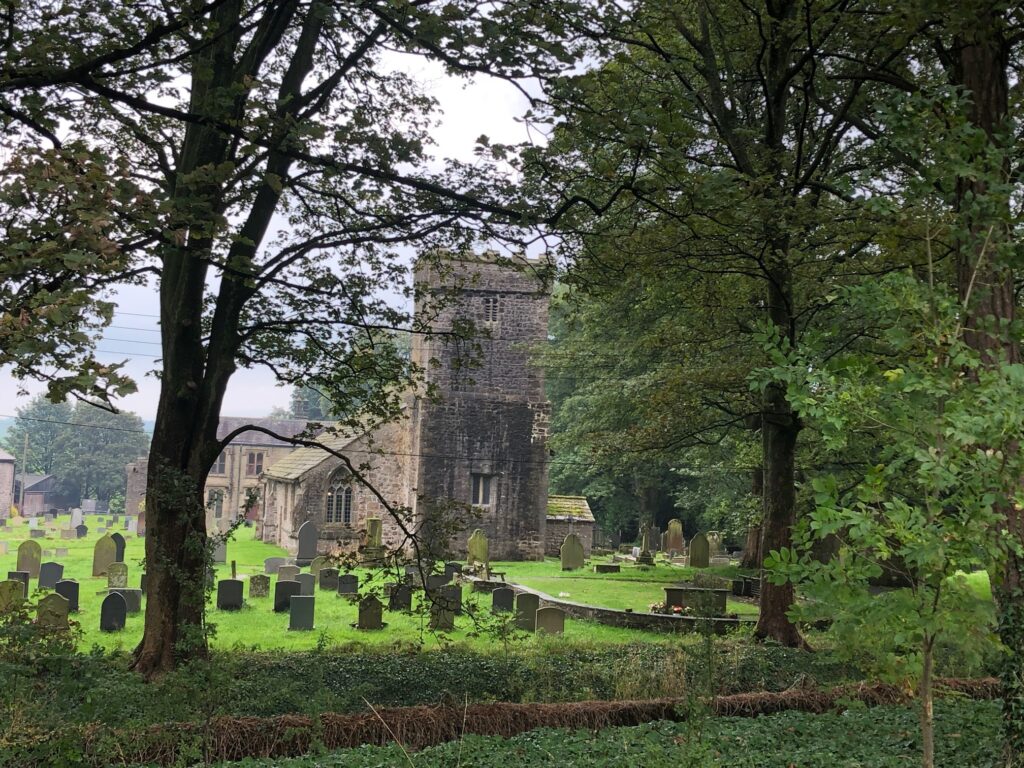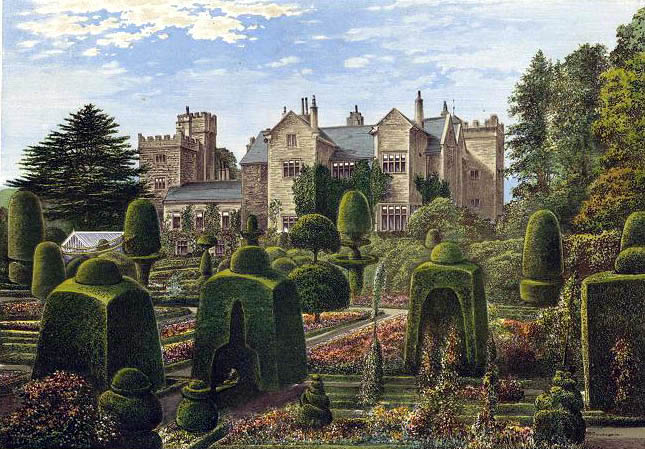The Oxford Dictionary of British Place Names by A. D. Mills is a marvelously helpful book if you’re writing a novel about 11th century England, and even if you aren’t it can be pretty interesting if you’re curious about names.
For example: Want to know what the town of Milton Abbas was called a thousand years ago? It was called Middeltune, from the Old English words middel and tun. It’s a very common name, and means ‘middle farmstead or estate’. The Abbas is Latin for ‘of the abbot’ and refers to the abbey that once stood there. Quite descriptive!

Milton Abbas today. In 1780 the entire village was demolished and rebuilt some distance from its original site. Now it’s considered Britain’s first “planned community”.
Or consider Winchester, which was the royal city of ancient Wessex. It has a completely different kind of etymology. It began as a pre-Celtic name, Ouenta, which possibly meant ‘favored place’. The Romans Latinized it and called it Venta. When the Anglo-Saxons came in, they called it, Uintancæster, from the Celtic/Roman name but adding the Old English word for a Roman town, ceaster. (The Anglo-Saxons were amazingly skillful at writing simple sounds in the most convoluted way imaginable.) By the time of Domesday Book in 1086 it had been shortened, mercifully, to Wincestre.

Winchester Cathedral, a Norman building that replaced the two Anglo-Saxon Minsters which once stood here.
I’ve found the book useful in trying to decide when to give a town its more modern name or its Anglo-Saxon name in the text of my novel. Only recently did I think to consult it regarding my own name. Well, actually, names.
I already knew that my married name, Bracewell, had British origins. My husband can trace his family back to Lancashire in the 1800’s. We knew there was a hamlet there named Bracewell, although on our first attempt to find it, our GPS refused to co-operate, and we didn’t get there until several years later. When I turned to my trusty Oxford Dictionary I learned that in the Domesday Book it was recorded as Braisuelle. The name is a combination of the Old Scandinavian personal name Breithr and the Old English word wella, and so it means ‘Spring or stream of a man called Breithr’. Old Scandinavian, eh? That may explain the redheads in the Bracewell clan.

St. Michael’s Church, Bracewell Village, which we finally found in 2019. Numerous Bracewells are buried here.
My maiden name, Leavens, has been spelled any number of ways in documents over the past 300 years, including Levens, Levins, and Levans. My sister, who has been studying the family genealogy, informs me that we can apply for membership to the Mayflower Society via four different ancestors. I was aware of a Levens Village in the Lake District of Britain, but I had never looked it up in my Oxford Dictionary. Upon doing so I discovered that in Domesday it appears as Lefuenes. I had run across this version of Levens before in an unrelated genealogy, and had thought it was Norman French, but no. It is a combination of the Old English personal name Lēofa and the word næss, which apparently means hill: ‘promontory of a man called Lēofa’.

The Elizabethan Hall and garden at Levens (sometimes spelled Leavens). Alas, nary a Levens nor Leavens actually lived here, but I can claim to have toured it twice. It started as a Norman tower which was incorporated into the later manor house. Photo: Wikimedia Commons
So what have I learned? That I might have Anglo-Saxon roots, and that apparently this Anglo-Saxon girl has gone and married a Viking. There was a lot of that going on in the 11th century.